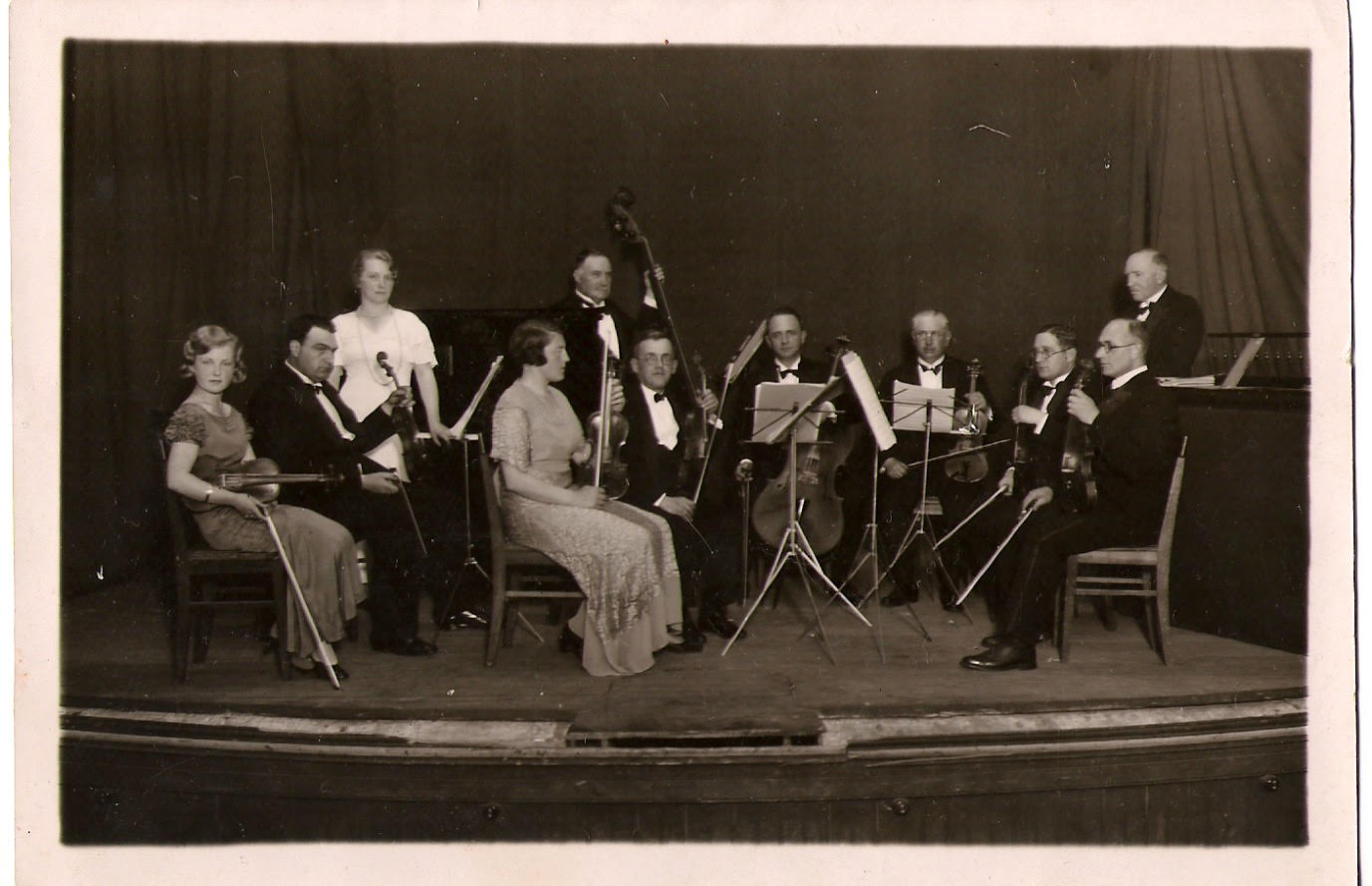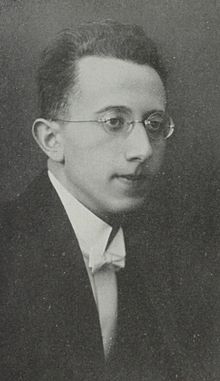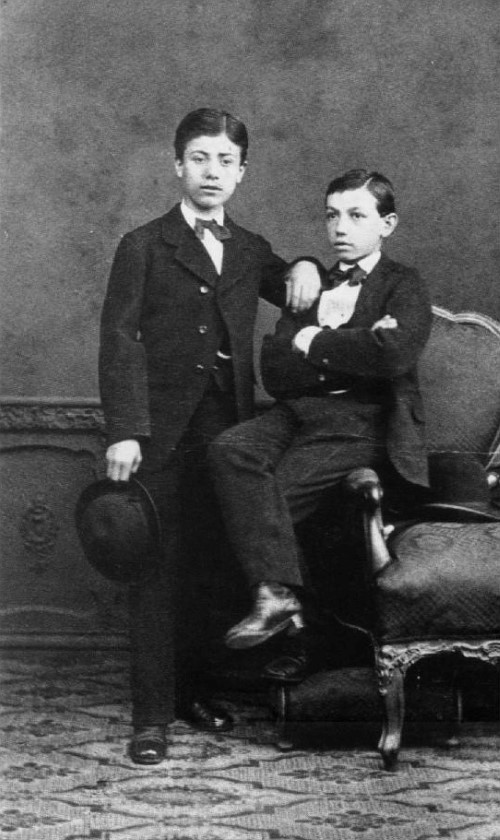- Profession: Composer, conductor and violinist
- Relation to Mahler: Nephew
- Born: 24-08-1881, Havlíčkův Brod
- Father: Filip Mahler (1835 Kaliste-1918 Vienna). Brother of Gustav Mahlers father Bernard Mahler. (1827-1889)
- Mother: Josefina Pick (1846-1916)
- Marriage:
- Children:
- Died: 1953, Tegualda, Chile
- Buried: Tegualda, Cemetario General, Chile
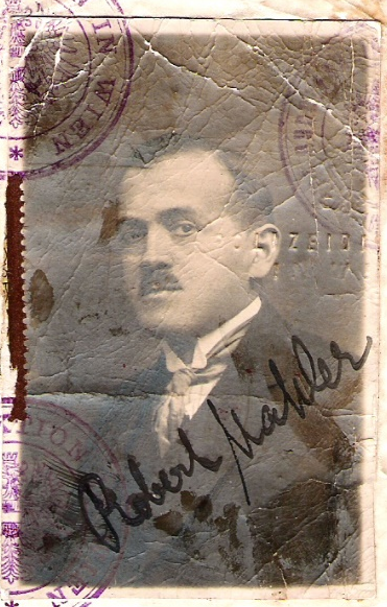
Robert Mahler was an Austrian-Bohemian composer, conductor, and violinist, whose career spanned roughly three decades in Vienna, and three decades in Valdivia, a small city in the South of Chile. His early compositions were primarily for small formats, including piano, choir, and vocal music, but after World War I he focused mainly on operetta and popular music. It was as an operetta conductor that he arrived in Chile, the country where he lived from 1925 until his death in 1953, and where, known as Roberto Mahler, he organized the first orchestra of the Patagonia region and laid the groundwork for musical and cultural institutions that are still prevalent in our time.
Early life
Robert Mahler was a cousin of Gustav Mahler. His father Filip was the brother of Bernard, the father of Gustav, and one of the ten children of Simon Mahler and Marie Bondy, their shared grandparents. Robert was born in 1881 from the marriage of Filip and Josefine Pick in the city of Havlíčkův Brod, less than 30 kilometers from where Gustav was born some twenty years earlier. It is not known if Gustav and Robert met, but they certainly might have, since they were born musicians and Robert moved to Vienna around 1899, when he was only 18 years old, and where Gustav was already a major figure of the capital’s musical life.
To understand the early career of Robert Mahler, there is an important anecdote that appeared, increasingly exaggerated, in several newspapers. In 1902, the Deutsches Volksblatt, the Illustriertes Wiener Extrablatt, the Neue Freie Presse, and the Reichspost, all commented on the story of “Der Falsche Mahler” (the wrong or the fake Mahler), as one of them titled it. Robert Mahler, described as a “slender Jewish boy” as well as “brunette”, had to appear in a courtroom, in March 1902, accused of fraud for organizing a bankrupt music festival along with his cousin Isidor Mahler, who “pretended to be Director Mahler’s nephew”, and name-dropping Gustav when proposing and organizing the festival. While everything was resolved as “youthful grandstanding”, Robert must have been seriously affected considering that the story was published in a farcical tone in so many newspapers. At the very least, it showed that being another Mahler in Vienna could have been more of a curse than a blessing.
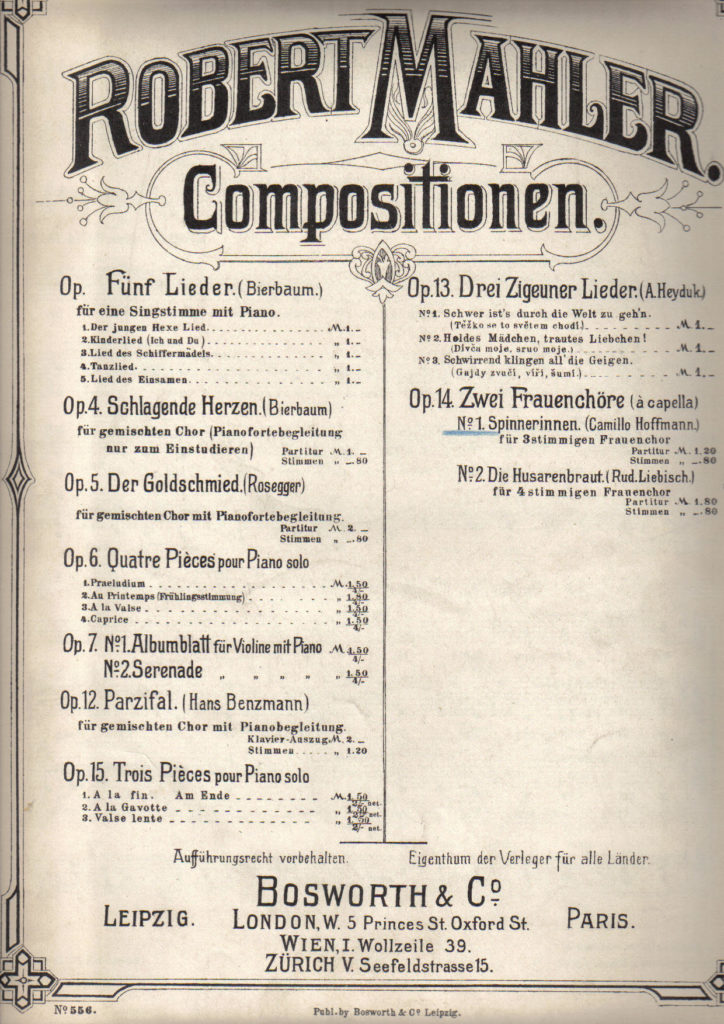
His early music was mainly published by Bosworth & Co., based in Leipzig and Paris, but also with printing capacities in London and Vienna. Those early pieces are mostly in three formats: piano solo, choir (with and without piano accompaniment), as well as Lieder. The earliest of this is a cycle of five songs, Fünf Lieder, based on poems of Otto Julius Bierbaum (1865 – 1910). That his first published work was connected so directly with a genre in which his cousin already excelled might have been a conscious act, given the stylistic similarities between some of these songs and works of Gustav Mahler. Also, some early works show a persistent connection with the Moravian lands where he was born. For example, his op.10 are two pieces for male voices composed for the Jason singing association of Nemsky Brod, published by Fr. Urbanek in Prague.
There is still much that is unknown about Robert Mahler’s years in Vienna. While newspaper accounts in 1906 describe him as a composer, in 1909 we start finding accounts of Robert Mahler as the music director of an operetta company in Vienna, with performances of pieces like Die Fledermaus as well as The Mikado, which he conducted for his own benefit concert in March 1909. It must have been a small traveling company, since Robert Mahler, described as a “stubborn Bohemian”, appears conducting them in Krems a month later. In 1913, Robert Mahler is listed among passengers on a boat from Hamburg to Rio de Janeiro and Buenos Aires, as the kapellmeister of an operetta company. It might be that a certain Paula Heine, one of the singers of that company, became his wife, whom we only know as “Paula Mahler ” in later documents. His mother, Josefine, died in October 1916, and his father Filip in August 1918, both of them living in Havlíčkův Brod, then called Deutschbrod. In both of their published obituaries Robert is mentioned as “composer in Vienna” and “military”, perhaps referencing a certain involvement during the First World War.
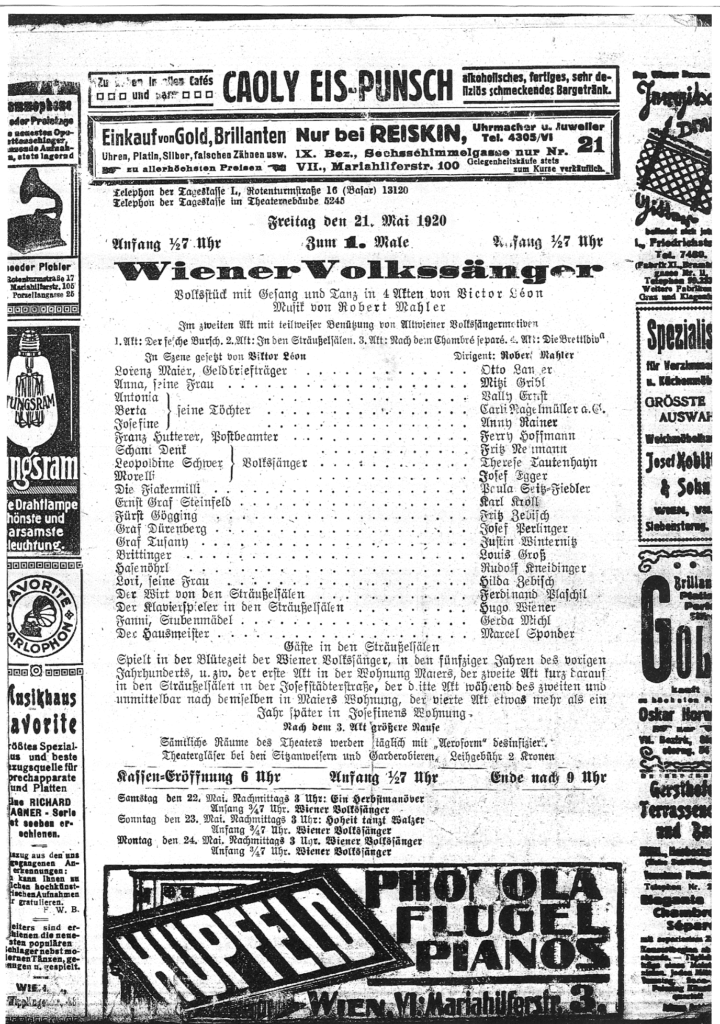
If Robert Mahler was both involved in operetta and traveling to South America during the 1910s, it seems clear too that his career development was cut short by the War. He returned to operetta, in good form, with the premiere of Wiener Volkssänger in the Raimundtheater of Vienna in May 1920. The piece, described as a Volksstück with singing and dancing, was written together with Victor Léon, famous for writing the libretto for The Merry Widow, with music by Franz Lehár. Wiener Volkssänger was successful with the public, but attacked by the critics who found it derivative and unoriginal. But Léon and Mahler became close friends, writing together one of Mahler’s most popular songs, the blues Einmal ist Keinmal, as well as one other operetta that remained unfinished: Magdalena. Among Léon’s papers in Vienna, there is also a letter Mahler sent from Valdivia in 1937, showing how their friendship endured after the composer moved to Chile in 1925. Léon, tragically, died in 1940 while hiding from the Nazis in Vienna.
His years in Chile
Robert Mahler passed through the city of Valdivia, Chile, in 1925, as director of a traveling operetta company. A few months later, in 1926, he is mentioned for the first time in local newspapers as living in the city, and conducting the most prominent of the local German brass bands, the Jägerchor. It is not clear why Robert Mahler decided to move to Valdivia, but there might have been several reasons. The first one was the economic crisis in Europe, and particularly in German lands, which contributed to the arrival of thousands of immigrants to the Americas during that decade. The second one, could have been the character of the city: Valdivia had been the central hub for German immigration in Chile since the 1850s; it had a very lively amateur musical life, with a clear need for better musicians as teachers, conductors and organizers. Robert Mahler, by then known as Roberto Mahler, could certainly have filled that role.
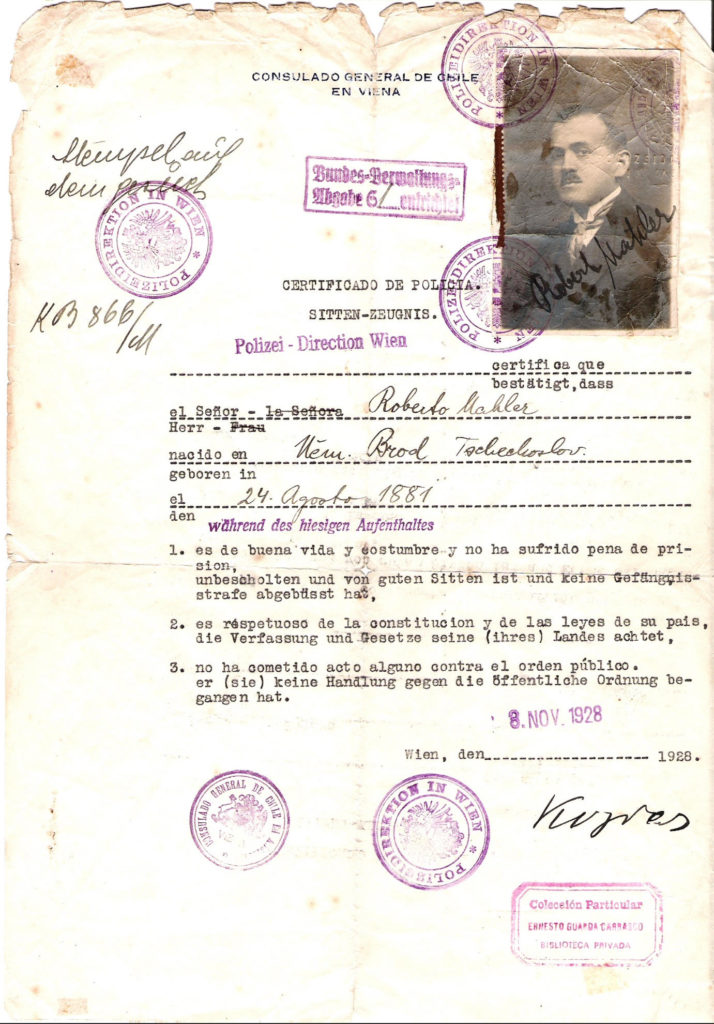
However, Mahler returned to Europe between 1927 and 1928. There is a score by Emmerich Vidor dedicated to him in Berlin in September in 1927, and his official Police Certificate to migrate to Chile was issued in Vienna in November 1928. It is not clear if he returned just to make his immigration official, or if he planned to return to Vienna and decided, after a few months, that Chile was a better option. By early 1929 he was already back in Valdivia as the organizer of a festival of German male choirs in Valdivia. He lived in a small house in Esmeralda Street, where, since around 1930, he offered his services as music teacher in violin or piano.
Perhaps the most important contribution of Roberto Mahler to the musical life of the city of Valdivia was the development of an orchestra. The small chamber orchestra appeared for the first time in an inaugural concert, as Sociedad Musical Valdivia, in October 1926. Later renamed Orquesta Mahler, the orchestra would become the first permanent classical music ensemble in the South of Chile and the Patagonia region, performing in monthly concerts until the early 1950s. It was the main orchestra for the Teatro Cervantes, the main theater in Valdivia, inaugurated in 1935, and still extant today. The orchestra was also the first musical organization in the region that included both “Chilean” and German musicians, when society was still deeply divided among both social groups, with different schools, clubs and even parts of the city.
Roberto Mahler had an early happy life in Valdivia, but the 1930s proved to be more difficult for him. His wife returned to Europe, but accounts differ as to why. It seems she was not Jewish, and that might have been an important factor in ending their relationship. Valdivia was a hotspot for Nazi activity in Chile during the 1930s, with a number of members of the Nazi party in charge of the Lutheran Church, the German Club, the German School and other prominent institutions, from which Mahler was barred. According to two different accounts, Paula was publicly criticized for being married to a Jewish man, in a city with almost no Jewish citizens in those years. Roberto Mahler tried to move to Santiago in order to get a job either in a radio orchestra or at the national conservatory, but without any luck.
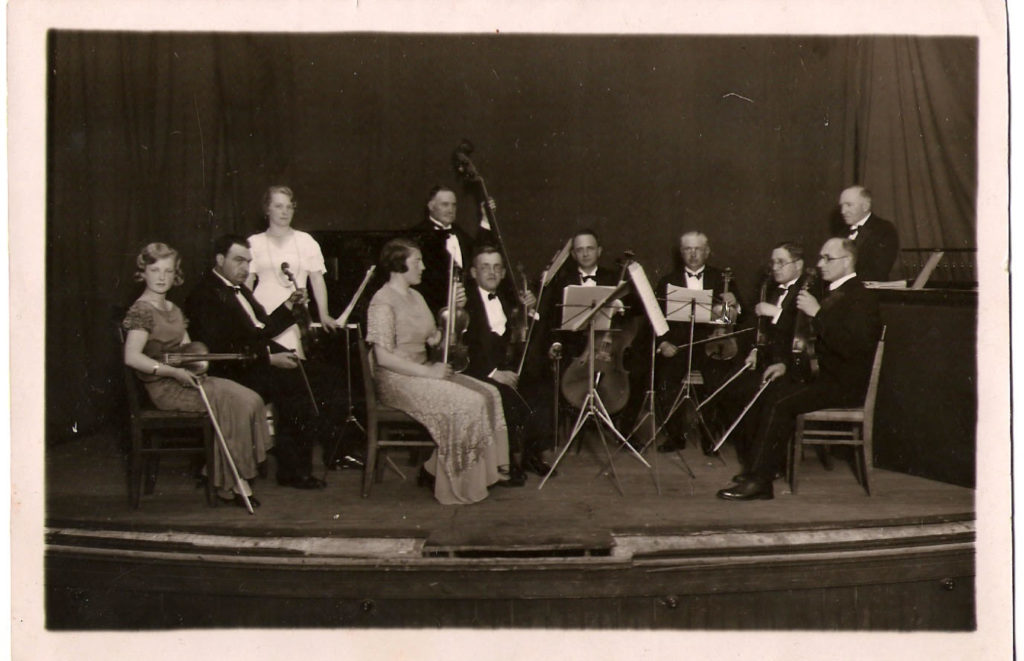
Roberto Mahler appeared back in Valdivia in 1938, after two years coming and going to Santiago. He would work in Valdivia until his death in 1953. During those years, he became much more involved with other local groups beyond the German communities. He wrote several anthems for sports clubs, schools and civic groups. He seems to have been particularly interested and involved in raising the level of music education in primary schools, organizing concerts for them. Many of his late orchestral pieces, in fact, were clearly meant for a young audience of small children, with stories of witches, queens and other fantastical creatures. He was also more closely involved in training the regimental band of the city, the Caupolicán; one of the last known pictures of him show him wearing the uniform of the band. He died in Tegualda, a little Spa town south of Valdivia, in 1953, and his tomb can still be visited in the Cementerio General.
Legacy
After an early career as a classical composer of minor works, including vocal music, solo piano pieces including a sonata, and other works for violin and piano, Robert Mahler’s time in Europe was predominantly focused on his job as conductor of operetta, as well as a composer of popular music. Some of his songs and dances became quite popular at the time, being constantly performed in Radio Wien as well as by the Wiener Jazz-Orchester. It
is also significant that some of those pieces, like Einmal ist Keinmal were still being played on the radio in Vienna during the 1930s, when he was already living in Chile. The last account of his music being played in Radio Wien was in a Mittagskonzert in November 1937, when two of his works were played: Vergessenes Märchen and Kalamaika.
Many of these songs were later translated and reprinted in Chile, where they also were performed in radios in Santiago and Valdivia. Kalamaika, in particular, became a staple, and was performed by choirs in the south of Chile until very recently. He also wrote new popular songs in Chile, both in Spanish and in German. As the conductor of the Orquesta Mahler he also arranged and composed much music for a small instrumental ensemble, including piano and harmonium, many of which go back, not without nostalgia, to his Vienna years. While the music did not circulate much to the rest of the country, it became truly popular among audiences in the south of Chile, where Roberto Mahler lived and performed until the end of his life.
Most of his surviving manuscripts are now kept in the Museo Histórico de la Universidad Austral de Chile, in Valdivia, and some of his music has been revisited by local orchestras in the last ten years, including a major concert in 2023 titled: El Otro Mahler. The journalist Raúl Sohr, whose parents escaped Vienna after the Anschluss in 1938 thanks to the help of Roberto Mahler, has written a novel titled La Guerra de Mahler. In the novel, part fiction and part reality, Roberto Mahler is portrayed both as a musician and as a spy against Nazi submarine movements in the South Pacific.
Mahler’s involvement with Valdivia and its history has not been forgotten. He a member of Amigos del Arte, a group that promoted concerts during the 1940s and set the groundwork for what would become the Universidad Austral de Chile, the major university of the Patagonia region. He was consulted to become director of music, but was already too old and declined. The University was founded in 1955, two years after his death, and his favorite student, Donald Little, became the director of music of the new Conservatory of Music, transforming Mahler’s Coros Polifónicos choir into what would become, until our days, the choir of the Universidad Austral. Many other of his students would become prominent musicians in the South of Chile: Norberto Petersen, Leonardo Mancini, Ernesto Guarda, and while his orchestra disappeared, Valdivia has had since then a long tradition of small professional orchestras that are knowingly indebted to his work almost a century ago, setting the groundwork for local music life in Valdivia.
Article written by José Manuel Izquierdo.

